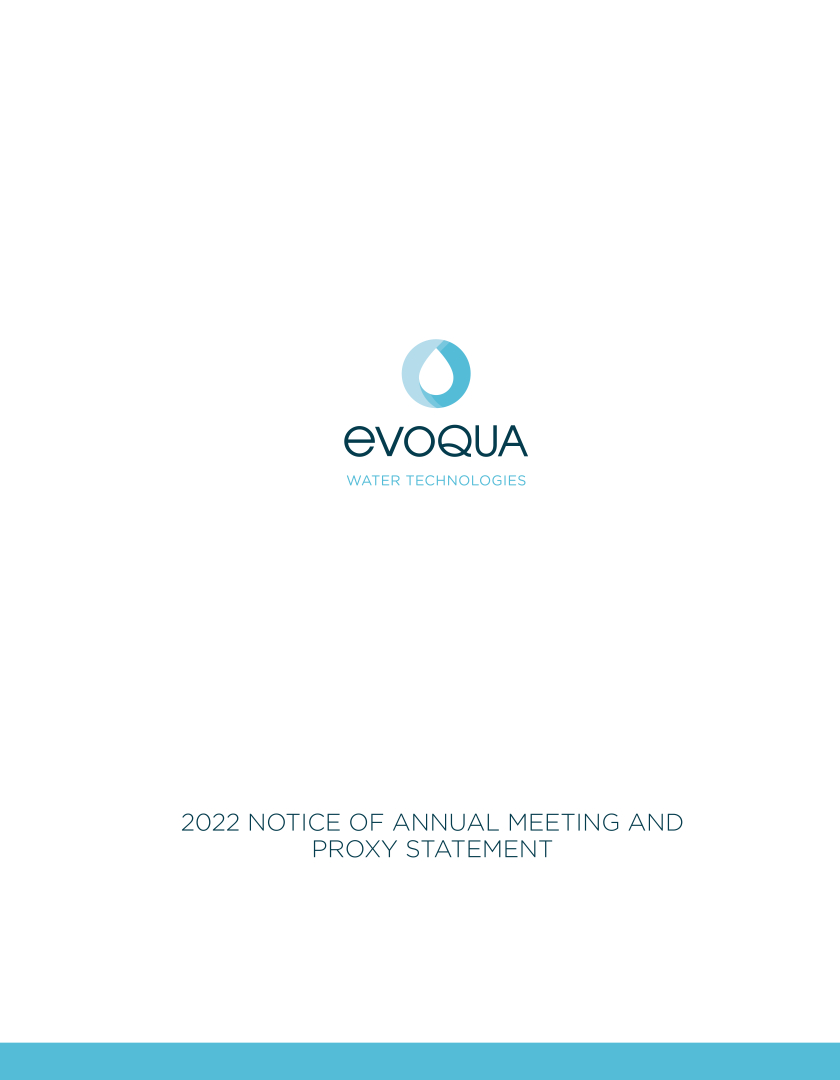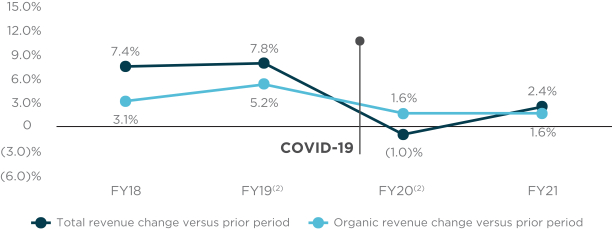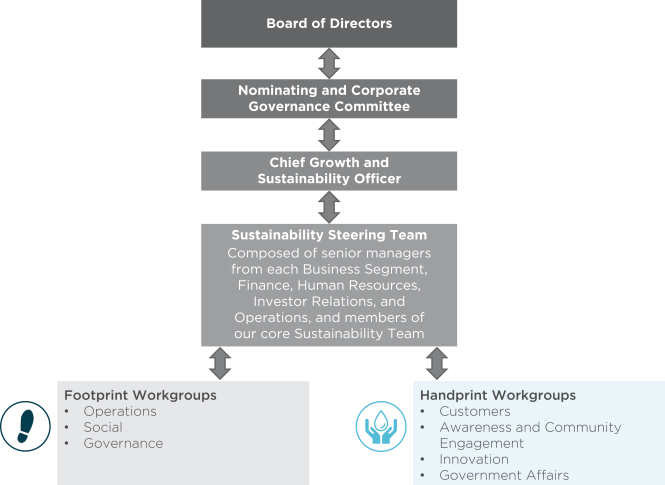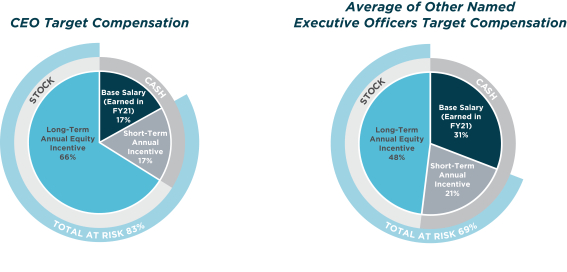Additionally, each of Messrs. Keating and Stas is eligible to receive enhanced severance payments and benefits in the event his employment is terminated within two years of a “Change in Control,” including: (i) a lump sum payment in an amount equal to the sum of (x) the relevant multiple of his base salary (2.5x times for Mr. Keating; 2x for Mr. Stas), plus (y) the relevant multiple of his target annual incentive compensation opportunity (2.5x for Mr. Keating; 2x for Mr. Stas), plus (z) a pro rata portion of his target annual incentive compensation opportunity in the year of termination; and (ii) the full vesting of any outstanding unvested equity awards issued by the Company to the NEO (in the case of the Special PSU awards, subject to the attainment of the applicable performance goals). Such enhancements of base salary continuation and annual incentive compensation would be paid in lieu of the base salary continuation and annual incentive compensation payments described above.
These severance payments and benefits are conditioned upon (i) the NEO’s continued compliance with his obligations pursuant to the restrictive covenants (including confidentiality, non-competition, non-solicitation, and interference with business relationships, among others), contained in his employment agreement, and (ii) the NEO’s execution, delivery, and non-revocation of a valid and enforceable general release of claims in favor of the Company within 45 days after the termination date. Pursuant to the employment agreements, in the event of any breach or threat of breach of the restrictive covenants contained therein, the Company will be entitled to an immediate injunction and restraining order to prevent such breach and/or threatened breach and/or continued breach, without having to prove damages, in addition to any other remedies to which the Company may be entitled at law or in equity, including, without limitation, the obligation of the NEO to return any portion of the severance payments paid by the Company to the NEO.
Definitions for Triggering Events. The terms “Cause,” “Disability,” and “Good Reason” used in the NEOs’ employment agreements and equity award agreements generally are defined as set forth below.
“Cause,” as used in the employment agreement and award agreements, means the NEO has engaged in any of the following: (i) commission of an act which constitutes common law fraud, embezzlement or a felony, an act of moral turpitude, or of any tortious or unlawful act causing material harm to the business, standing or reputation of the Company or any of its affiliates, (ii) gross negligence on the part of the NEO in the performance of his duties hereunder, (iii) breach of his duty of loyalty or care to the Company, (iv) other misconduct that is materially detrimental to the Company or any of its affiliates, or (v) ongoing and deliberate refusal or failure to perform the NEO’s duties as contemplated by his employment agreement or any other agreement with or for the benefit of the Company to which the NEO is a party or by which the NEO is bound, which in the case of a failure that is capable of being cured, is not cured to the reasonable satisfaction of the Board within 30 days after the NEO receives from the Company written notice of such failure, provided that for the avoidance of doubt a failure to meet performance expectations shall not in of itself constitute Cause.
“Disability,” as used in the employment agreements, means the NEO is entitled to and has begun to receive long-term disability benefits under the long-term disability plan of the Company in which the NEO participates, or, if there is no such plan, the NEO’s inability, due to physical or mental ill health, to perform the essential functions of the NEO’s job, with or without a reasonable accommodation, for 180 days out of any 270 day consecutive day period.
“Disability,” as used in the award agreements, means a permanent and total disability as defined in Code Section 22(e)(3). A determination of Disability may be made by a physician selected or approved by the Compensation Committee and, in this respect, the NEO shall submit to any reasonable examination(s) required by such physician upon request. Notwithstanding the foregoing, in the event any award is considered to be “deferred compensation” as that term is defined under Section 409A of the Code and the terms of the award are such that the definition of “disability” is required to comply with the requirements of Section 409A of the Code then, in lieu of the foregoing definition, the definition of “Disability” for purposes of such award shall mean, with respect to a NEO, that the NEO is unable to engage in any substantial gainful activity by reason of any medically determinable physical or mental impairment that can be expected to result in death or can be expected to last for a continuous period of not less than 12 months.
“Good Reason,” as used in the employment agreements, means one of the following has occurred: (i) a material and adverse change in the NEO’s duties or responsibilities as an employee of the Company, (ii) a breach by the Company of a material term of the NEO’s employment agreement or (iii) in the case of Messrs. Keating,





































